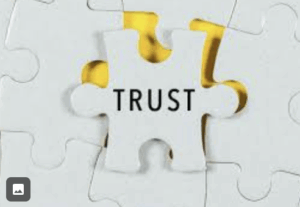In today’s fast-paced world, burnout has become a common issue affecting individuals across various professions and lifestyles. Understanding how to recognize and manage burnout is essential for maintaining mental and physical health. In this blog post, we will explore the signs of burnout, provide practical tips for managing it, and discuss how individual psychotherapy can offer support.
Recognizing the Signs of Burnout
Burnout is a state of emotional, physical, and mental exhaustion caused by excessive and prolonged stress. It can affect anyone, but it is especially common among professionals in high-stress jobs, caregivers, and individuals juggling multiple responsibilities. Recognizing the signs of burnout is the first step towards addressing it. Common symptoms include:
Emotional Signs:
- Chronic Fatigue: Feeling tired and drained most of the time.
- Depression and Anxiety: Persistent feelings of sadness, hopelessness, or anxiety.
- Irritability: Becoming easily frustrated or angry.
- Detachment: Feeling disconnected or indifferent towards work and personal life.
Physical Signs:
- Frequent Illnesses: Increased susceptibility to colds and other infections.
- Headaches and Muscle Pain: Persistent physical aches and pains.
- Sleep Problems: Difficulty falling or staying asleep, leading to insomnia.
Behavioral Signs:
- Decreased Productivity: Struggling to complete tasks and meet deadlines.
- Isolation: Withdrawing from social interactions and support networks.
- Neglecting Responsibilities: Avoiding or delaying work and personal duties.
If you’ve ever experienced burnout or are experiencing it now, you know that it can sometimes feel like you’re in a hole that you’ll never be able to climb out of. That’s why it’s important to understand rthat there are practical strategies that can help pull you up and out and if utilized regularly, can prevent you from ever slipping back. Managing burnout requires a proactive approach to self-care and lifestyle changes. Here are some practical tips to help you manage and prevent burnout:
1. Prioritize Self-Care
Engage in activities that promote relaxation and well-being. This can include exercise, hobbies, reading, spending time in nature, or talking to an unbiased professional (aka therapy!). Regular self-care helps recharge your energy and reduce stress levels. When our tank is full, we have energy to give to other people and/or tasks.
2. Set Boundaries
Learn to say no and set clear boundaries between work and personal life. Avoid taking on more responsibilities than you can handle and ensure you have time for rest and recreation. Life is about balance!
3. Practice Mindfulness and Relaxation Techniques
Incorporate mindfulness practices such as meditation, deep breathing exercises, and yoga into your daily routine. These techniques can help reduce stress and improve mental clarity.
4. Maintain a Healthy Lifestyle
A balanced diet, regular exercise, and sufficient sleep are crucial for managing stress and preventing burnout. Avoid excessive caffeine and alcohol, and make time for physical activity each day.
5. Seek Support
Don’t hesitate to reach out to friends, family, or colleagues for support. Sharing your feelings and experiences with others can provide relief and new perspectives. Consider joining support groups where you can connect with others facing similar challenges.
How Individual Psychotherapy Can Help
Individual psychotherapy is a valuable resource for those experiencing burnout. Therapy provides a safe and supportive environment to explore your feelings, identify the root causes of stress, and develop effective coping strategies. Here’s how individual psychotherapy can help:
1. Understanding the Root Causes
A therapist can help you identify the underlying factors contributing to your burnout, whether they are related to work, personal life, or a combination of both.
2. Developing Coping Strategies
Through therapy, you can learn healthy coping mechanisms to manage stress and prevent burnout. This can include time management techniques, relaxation exercises, and cognitive-behavioral strategies.
3. Improving Work-Life Balance
Therapists can assist you in creating a more balanced lifestyle by setting realistic goals, establishing boundaries, and prioritizing self-care.
4. Enhancing Emotional Resilience
Therapy can help build emotional resilience, enabling you to better handle stress and recover from setbacks more effectively.
Burnout is a serious condition that can have significant impacts on your overall well-being. Recognizing the signs and taking proactive steps to manage stress are crucial for maintaining health and productivity. Individual psychotherapy offers a supportive avenue for addressing burnout and developing effective coping strategies.
At Kingston & Co Counseling, we are dedicated to helping you navigate the challenges of burnout and achieve a healthier, more balanced life. For more information on our services or to schedule an appointment, please contact us. We are here to support you every step of the way.







